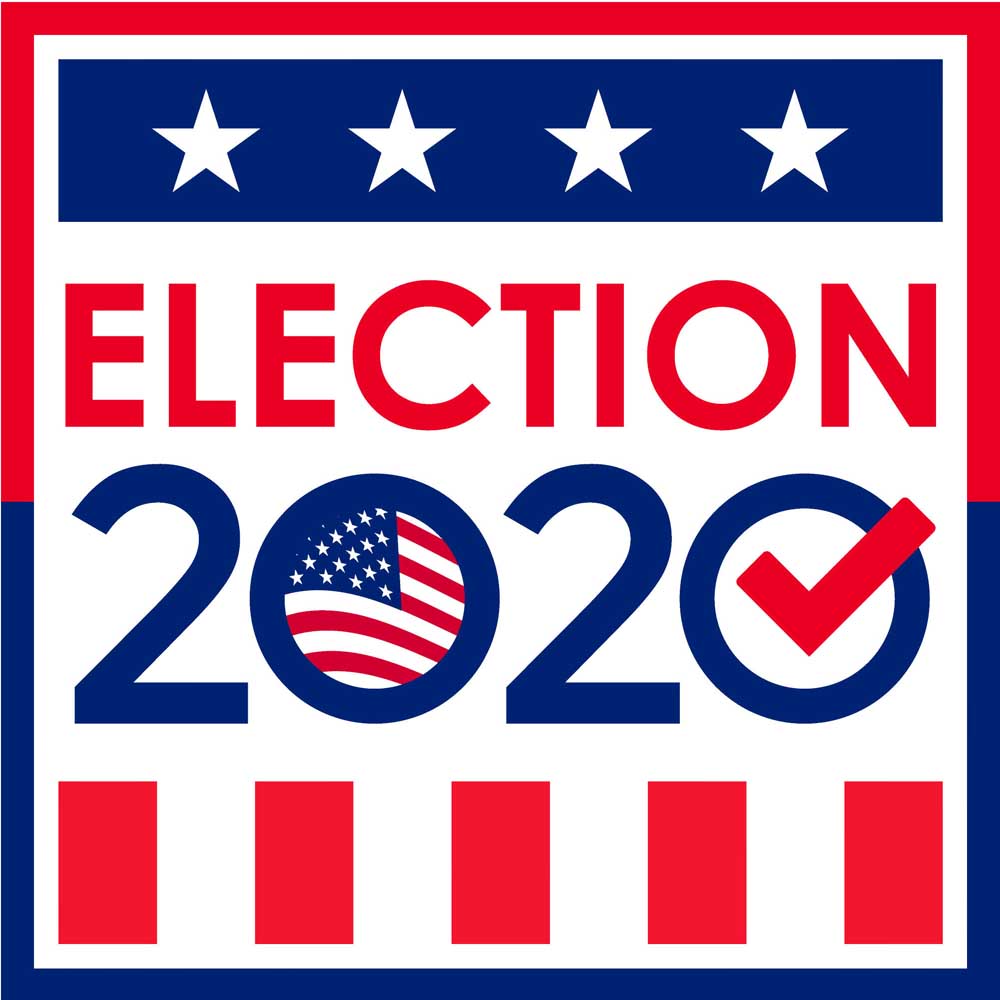Our View: Biden for president
Published 12:30 am Saturday, October 3, 2020

- Election 2020 logo
Presidential politics can seem distant in our small corner of the Pacific Northwest.
Trending
Our focus at The Astorian is mainly on how policy issues before the city, county and state influence the North Coast, but the federal government has an important role.
The presidency has an outsized footprint on our national public life. We believe our system of government works best when there is coequal power between the White House, Congress and the courts.
It is unhealthy for democracy when too much weight is placed on the presidency. We should never expect one person to deliver hope and change. We should not trust anyone who claims, “I alone can fix it.”
Trending
On the North Coast, we would like the federal resources necessary to preserve the Columbia River as a vital shipping channel. We want the federal government to appreciate the economic value of commercial fishing, logging and manufacturing, while enforcing reasonable safeguards to protect our environment.
We need federal money to improve our highways and bridges to help prepare for a Cascadia Subduction Zone earthquake and tsunami. We want a national commitment to combat climate change, since we are vulnerable to rising seas and dangerous wildfires.
We endorse Joe Biden. In our view, he has the potential to be more effective on issues critical to the North Coast and to the nation.
His eight years as vice president under President Barack Obama, and his 36 years representing Delaware in the U.S. Senate, give the Democrat perspective into the nuances of executive and legislative power.
This experience gives Biden the potential ability to work with Congress and produce legislation on topics both major political parties agree on, like investments in infrastructure and workforce development, closing gaps in mental health and substance abuse treatment and expanding access to child care and long-term care.
Experience
We believe Biden is prepared to lead the country out of the coronavirus pandemic. Our health and economic recovery depends on the federal government, the states and private industry channeling expertise into action. Americans need to be able to trust the information coming from the White House to do their part in reducing the spread of COVID-19 while vaccines or other solutions are developed.
One of the most consequential powers a president has is judicial nominations to the U.S. Supreme Court and other federal courts. Over time, these nominations have become far too politicized — as Biden knows from his role as chairman of the Senate Judiciary Committee when Anita Hill, an African American law professor, accused Clarence Thomas of sexual harassment during his confirmation hearing for the Supreme Court in 1991.
Like many men in positions of authority, Biden — who has expressed regret to Hill for how she was treated by the committee — has been confronted in the #MeToo era. While his answers have not been perfect, he has shown a willingness to evolve.
We don’t pretend Biden would not nominate more liberal judges, but we think he has a well-rounded view of the qualities that make a good judge and a respect for the separation of power between the executive and judicial branches.
The death of Justice Ruth Bader Ginsburg, a liberal advocate for equality, means the Supreme Court will likely shift further to the right. The next president could fill one or more Supreme Court seats, and more conservative judges could put legal protections for abortion and other reproductive rights, health care, the environment and labor at risk.
We recognize Biden’s limitations. But he is not campaigning as a transformational figure or promising to radically change Washington, D.C. In a national crisis, we don’t need to chase unicorns. We can embrace decency and competence.
Biden’s choice of U.S. Sen. Kamala Harris, a former California attorney general, as his running mate, provides generational, gender and racial balance. Harris, who is of Jamaican and Indian descent, is the first woman of color nominated by a major party for vice president. She would bring a prosecutor’s determination and a personal understanding of the barriers the country still faces in the march to end systemic racism.
An unnecessary risk
President Donald Trump’s victory in 2016 was a surprise. Voters had never elevated someone with no experience in government service, elected office or the military to the White House.
Trump was not well-versed in domestic or foreign policy. His temperament was not suited for the demands of steering the federal government, commanding the military and leading the nation on the international stage.
While there was some appeal to the idea a businessman could bring change, Trump’s record in business was marred by bankruptcy, allegations of fraud and a lack of transparency in his refusal to publicly disclose his tax returns.
We believed electing Trump was an unnecessary risk. We feel the same about his reelection.
We disagree with Trump’s politics, but do not fault the president for pursuing the policy agenda he campaigned on: tax relief that mostly favored the wealthy; dismantling the Affordable Care Act; building a wall on the southern border with Mexico; reducing regulations on businesses.
People who oppose these policies should have worked harder to elect former U.S. Secretary of State Hillary Clinton, and should be working harder today to elect Biden.
No one, though, should excuse Trump’s conduct.
Robert Mueller, the special counsel, found the Russian government interfered with the 2016 presidential election in sweeping and systematic fashion on behalf of Trump. The investigation did not find the Trump campaign conspired or coordinated with Russia, but documented numerous links with the Russian government. Mueller did not determine whether the president obstructed justice during the investigation, but did not exonerate him.
The U.S. House, controlled by Democrats, voted to impeach the Republican for abuse of power and obstruction of Congress for pressuring Ukraine to open an investigation into Biden, only the third time in history a president has been impeached.
The president’s response to the killing of George Floyd at the hands of Minneapolis police — a tragedy that triggered demonstrations against institutional racism and police brutality around the globe — has been to inflame tensions and exploit divisions for political gain.
Trump has undermined public faith in the integrity of the federal government by his political interference. His meddling has shaken the National Weather Service, the U.S. Census Bureau, the Food and Drug Administration, the Centers for Disease Control and Prevention, the U.S. Department of Homeland Security and — most alarmingly — the U.S. Department of Justice.
If we lived in better times, it would be easier to look at the past four years as a cautionary tale, an example of what can happen when voters succumb to their worst instincts. But Trump’s assault on expertise has a death toll: more than 200,000 Americans have died in the coronavirus pandemic.
From the start, the president downplayed the severity of the virus, sabotaged public health experts, promoted questionable treatments, mocked masks and other precautions and urged states to lift restrictions too early.
On Friday, Trump disclosed that he and the first lady, Melania, had tested positive and would quarantine.
Vice President Mike Pence, a former Indiana governor and congressman, was supposed to be a calming influence who could help compensate for Trump’s inexperience. While Pence has served as a troubleshooter during the pandemic, he has been unwilling to stand up for science in any meaningful way.
“What do you have to lose?” Trump asked in 2016 in an appeal to Black voters that really could have applied to all of us.
Now we know the answer.









